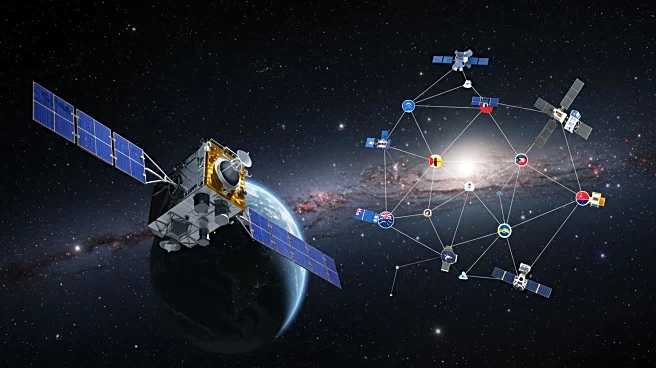What's Happening?
The U.S. military is set to conduct the Schriever Wargame in 2027, marking a significant shift towards a coalition-led space strategy. This exercise will be the first time that allied nations will jointly develop scenarios, rather than the U.S. leading unilaterally. The Schriever Wargame is a key event in military space strategy, focusing on the integration of allied forces to enhance collective defense capabilities. The move reflects a broader trend in U.S. defense policy to strengthen international partnerships and improve collaborative efforts in space operations.
Why It's Important?
The inclusion of allies in the Schriever Wargame underscores the importance of international cooperation in space defense. As space becomes an increasingly contested domain, coalition strategies are vital for maintaining security and stability. This approach could lead to more robust defense mechanisms and shared technological advancements among participating nations. The shift may also influence global defense policies, encouraging other countries to adopt similar collaborative strategies. The integration of allies in space operations could enhance the U.S.'s strategic position and foster stronger diplomatic ties.
What's Next?
Following the 2027 Schriever Wargame, there may be increased efforts to formalize coalition-led strategies in other areas of defense. Participating nations are likely to evaluate the outcomes of the exercise to refine their collaborative approaches. The U.S. military may also seek to expand the scope of allied participation in future wargames, potentially involving more countries and diverse scenarios. This could lead to the development of new joint defense initiatives and agreements, further solidifying international partnerships in space strategy.
Beyond the Headlines
The shift towards coalition-led space strategy may have deeper implications for global security dynamics. It could prompt discussions on the ethical and legal aspects of space militarization, as nations navigate the complexities of shared defense responsibilities. Additionally, this development might influence cultural perceptions of space as a domain for peaceful collaboration rather than conflict. Long-term, the integration of allies in space operations could drive innovation and technological advancements, benefiting both military and civilian sectors.











